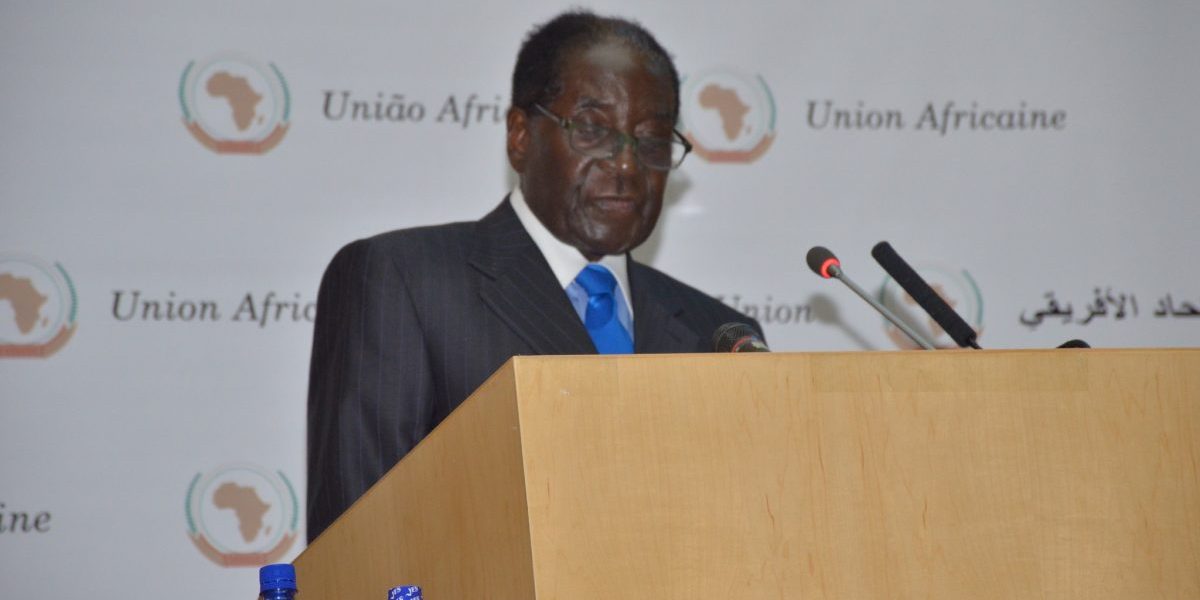In its report, Zimbabwe: Power and Hunger Violations of the right to food, Amnesty International is arguing that a large part of the Zimbabwean population has gone hungry due to ‘discrimination and corruption’. Local and international interest groups believe the government’s claim of a good harvest this season is part of a broader political strategy to coerce people to support the ruling party ahead of elections next March. This has been an accusation raised by interest groups since early last year.
When a state has sovereignty it means that no other country or nonstate actor has the right to intervene in its domestic politics. However, for Zimbabwe this is not the case, especially after the Commonwealth, Britain and the US started criticising its government’s human rights record. This is an indication that international organisations and other members of the international community can ‘transnationalise’ domestic issues. Interest groups also possess this talent.
In the light of Amnesty International’s criticism, Zimbabwe’s internal problems are no longer the concern only of domestic actors but also of the wider international community. That Amnesty International has compiled a report on the matter shows it is using so-called ‘scientific proof’ (statistics and methodology of such studies are always questionable) as a control technique in its lobbying strategy.
What are the implications of Amnesty’s report for Zimbabwe’s autonomy and governance in the country?
First, Zimbabwe contrary to popular belief cannot act in an absolutely autonomous way. Anything the government does is scrutinised by local and international interest groups and acted on by them. This has repercussions for the government’s manoeuvring space it is shrinking. The interest groups are placing additional constraints on the way the government devises and implements its policies by creating moral norms, which are subsequently used as a basis from which lobbying campaigns originate.
Second, the type of behaviour of Amnesty International (using so-called ‘scientific proof’ to lobby) has negative repercussions for Zimbabwe’s authority. Its moral authority is diminished to a significant extent. What Amnesty International is indicating is Zimbabwe does not have the capacity to look after every citizen, only those inclined to support the ruling party. In other words, loyalty to Zanu (PF) dictates moral scruples, meaning the separation between the ruling party and the state is blurred.
Both the diminishing of moral authority and the distortion of bifurcation between party and state have repercussions for governance. Because of these persistent factors in the body politic, Zimbabwe has been increasingly unable to defend its policies and practices in the international community, and it is incapable of enhancing the socioeconomic development of every citizen because of an abuse of political power. This has increased the salience of the issue of food insecurity and the role and involvement of transnational interest groups in Zimbabwe’s domestic affairs.
Zimbabwe will react to these claims by Amnesty International by denying their truth and countervailing the statements through alternative interpretation. Nevertheless, by acting in an authoritarian way, Zimbabwe has incurred the wrath of outside interest groups. This means the Zimbabwean government has to stave off criticism from international organisations and other governments, and also criticism from an international movement of nonstate actors closely watching its internal affairs. Not only are local interest groups challenging the government’s legitimacy and the governing powers of its political leaders, but interest groups operating outside Zimbabwe are doing it too.
The current government faces a severe challenge to its authority both on the domestic front and internationally. Reasons for this include cynicism about the political institutions of the country the executive, parliament, the courts and the ruling party. This might have the opposite effect of buying support with food loyalties are directed towards local and international interest groups.
Ahead of the election, the government may rely on a diminished loyalty to conduct a successful campaign. The transnational role and involvement of international interest groups has dealt a blow to Zimbabwe’s autonomy. No matter how Draconian its Nongovernmental Organisation Bill, the government cannot control the actions of international interest groups such as Amnesty.








